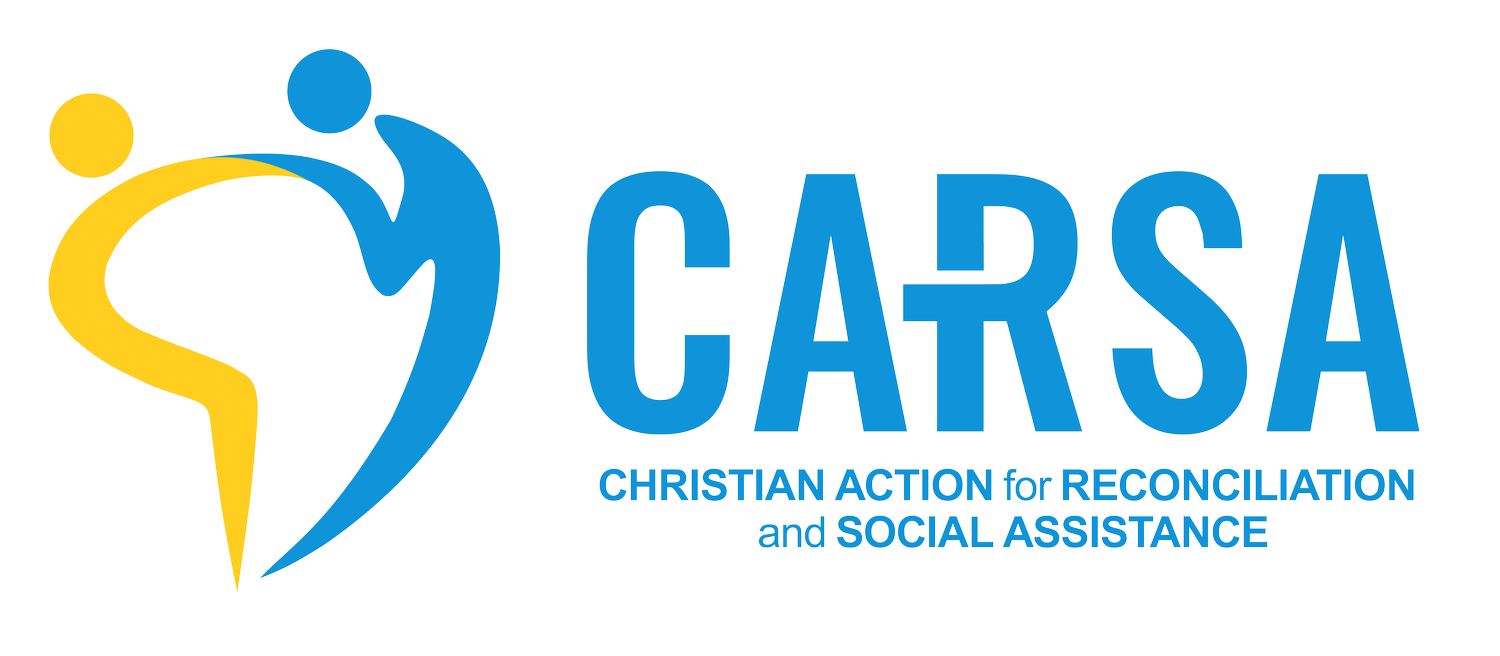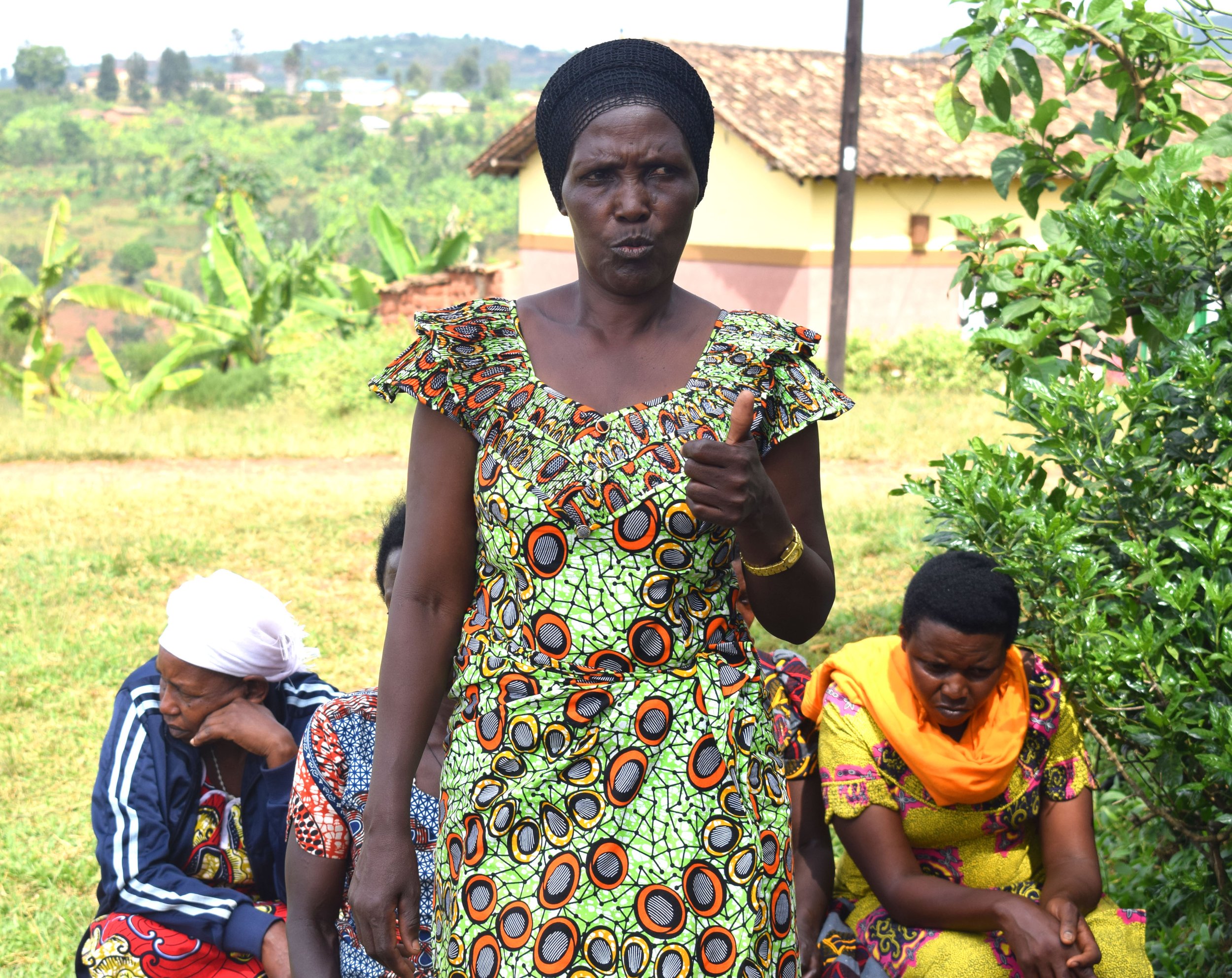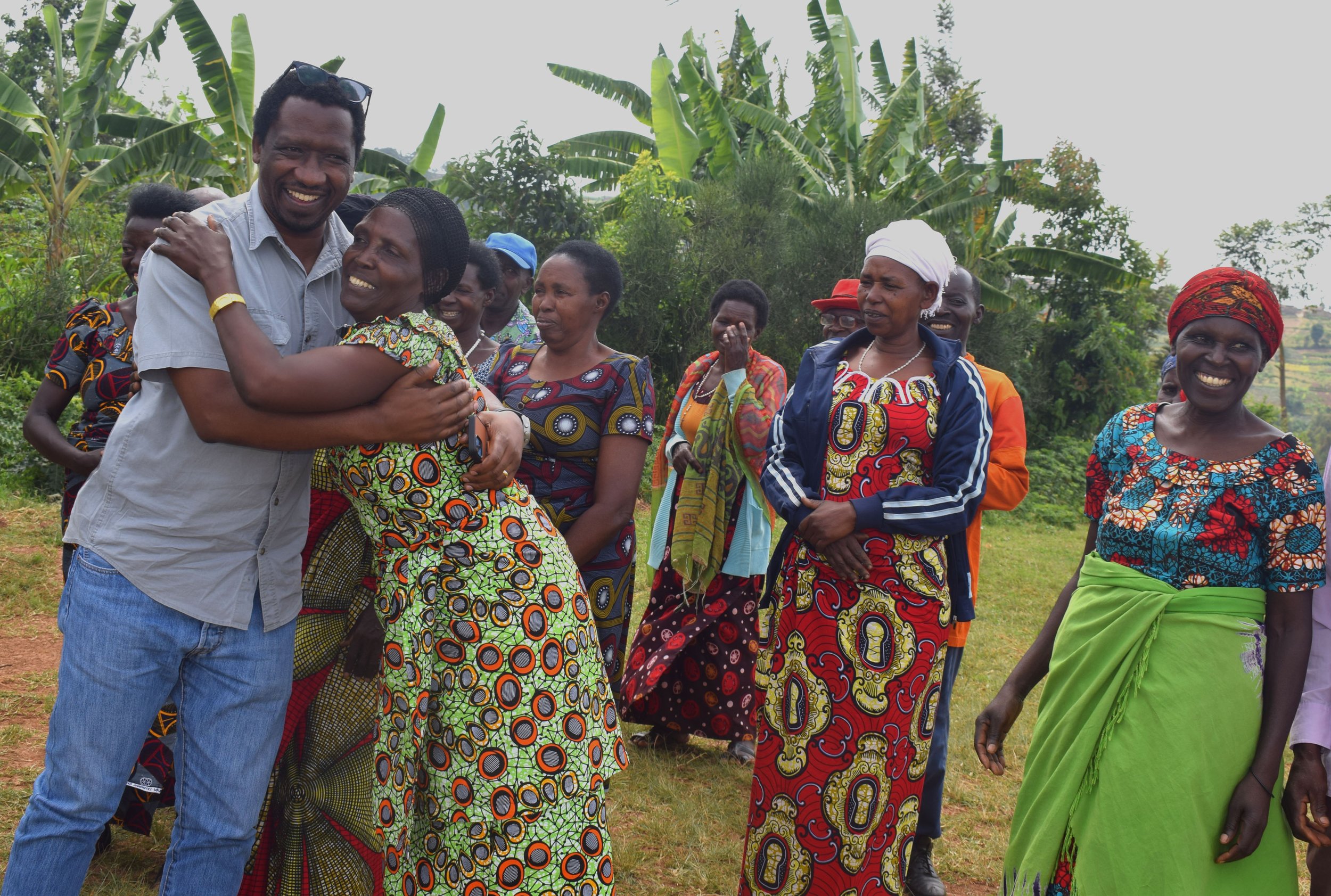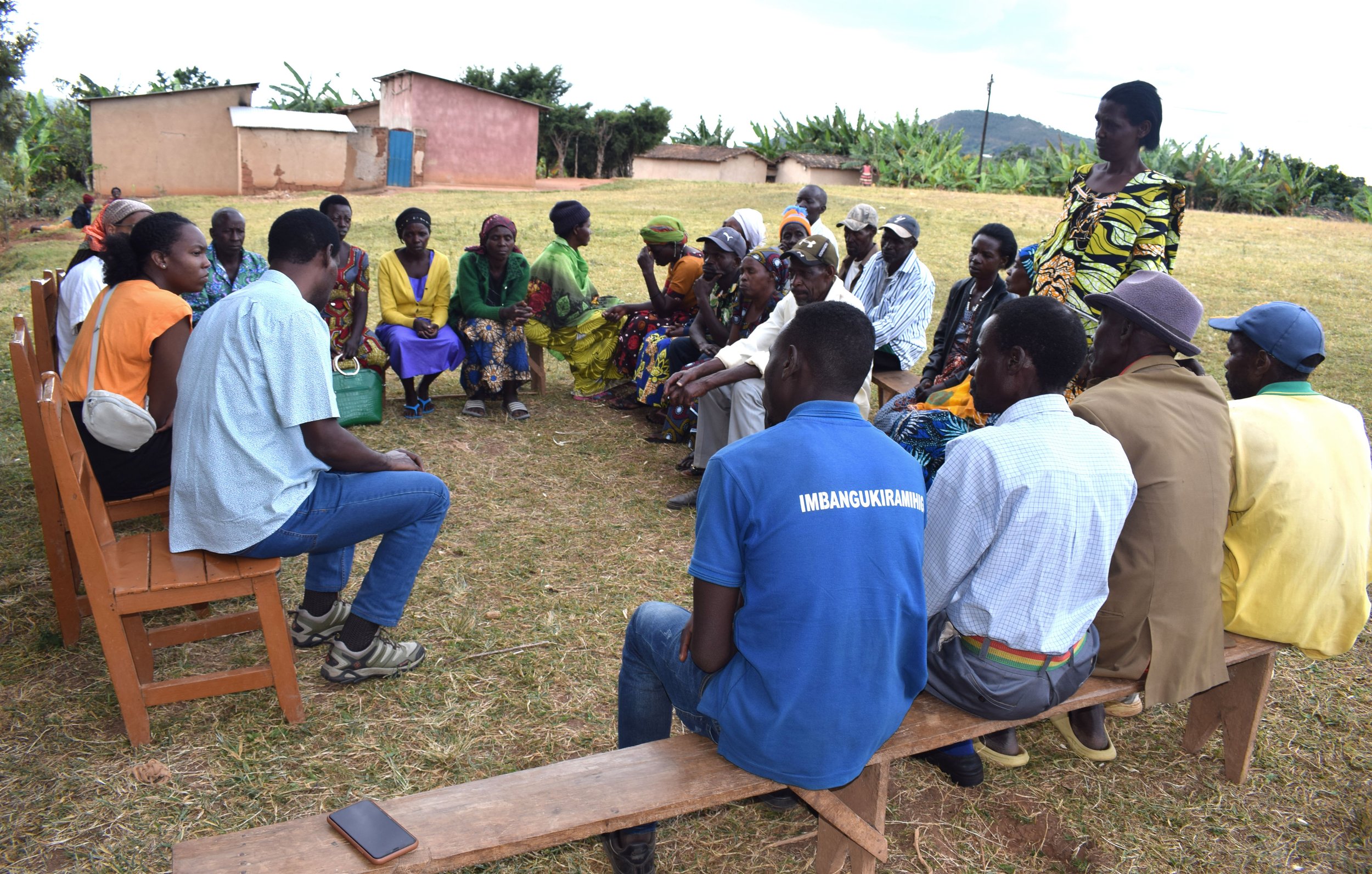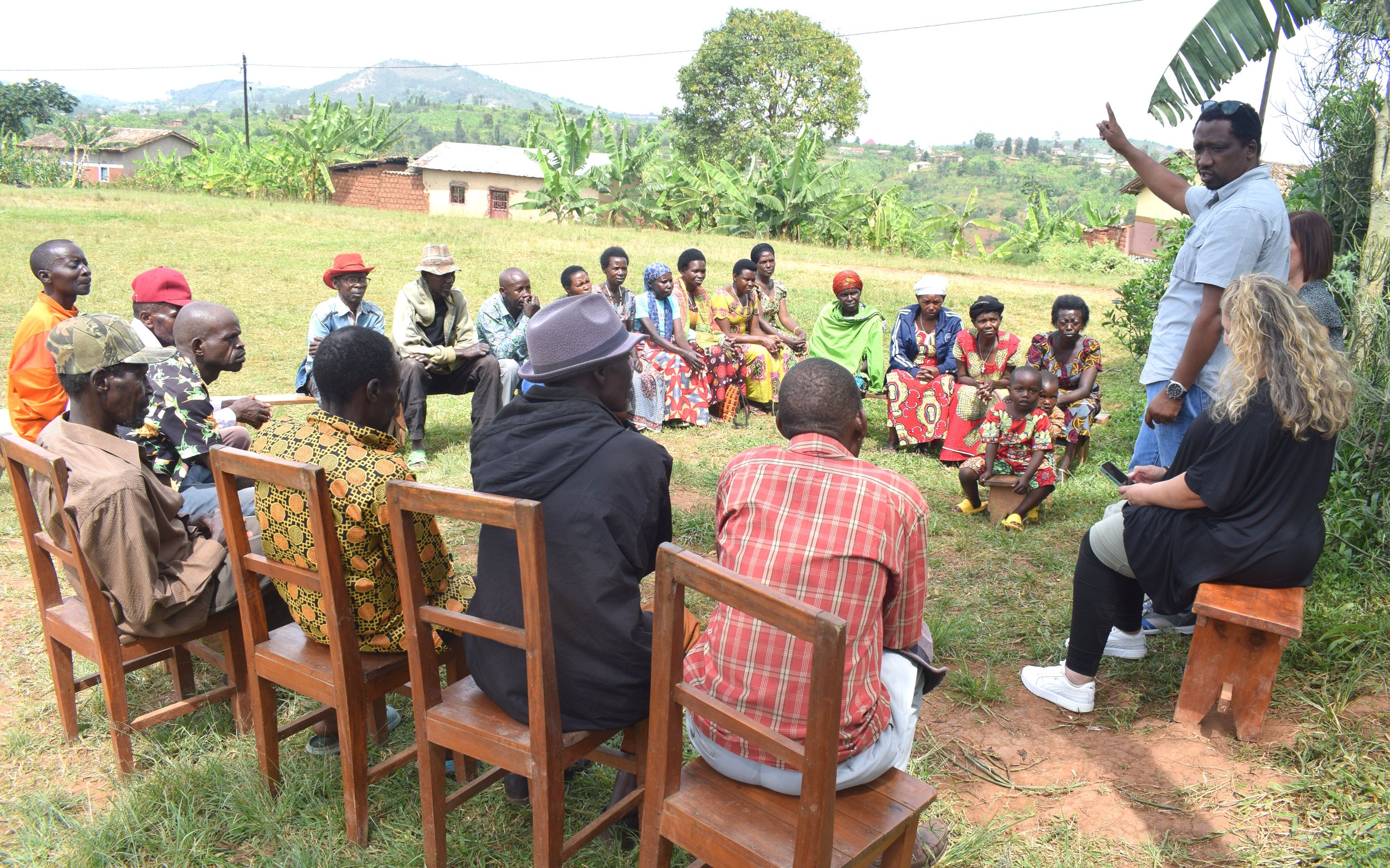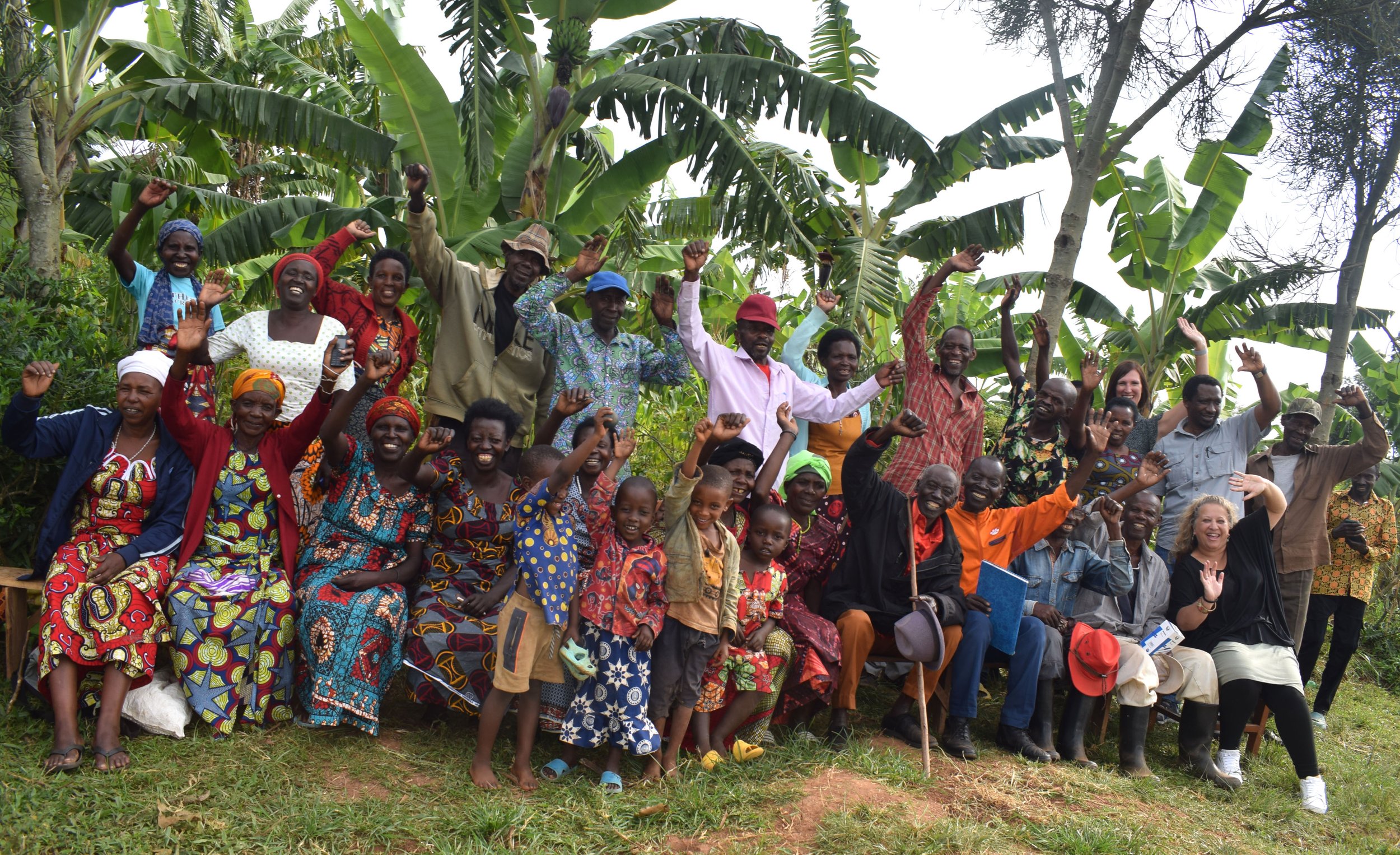“The scars turned into stars and enemies became close friends”: How Resilience Cell Groups are Strengthening Mental Resilience, Reconciliation and Livelihoods in Rwanda
Ugirimurera Jeanne, a genocide widow, and Kabagema Fidele, a former genocide perpetrator, are among 22 members of the Kivumu Resilience Cell Group (RCG) established by CARSA in the last 9 years. The group operates in Muhanga District in southern Rwanda. Looking at the way they live and the way they talk, laugh, and hug one another, you absolutely notice that there is a good relationship between them. The only surprising thing is that when you hear their story of what they went through, they tell you it's not how it used to be. Jeanne and Fidele were neighbors and used to live together until the genocide happened, where Fidele participated in the mobs that killed Jeanne's husband, destroying and looting her family properties. Jeanne was very hurt to hear that the one she considered a brother was the one who widowed her; since then she never spoke to him again. At the end of the genocide, Fidele was surprised that Jeanne survived, and since then he has been running away from her. "He was such a powerful man but when we met, he used other ways or hide," Living in the same community with perpetrators caused her both emotional and psychological Trauma "I despaired that so-called close people were the ones who made me a widow," Jeanne says.
Jeanne and Fidele were hugging in the cycle of RCG meetings and overjoyed by their relations after unimaginable events.
However, for Jeanne, the imprisonment punishment for Fidel was not enough. Due to the wounds and grief, she suffered from losing her husband; what could please her most was to kill Fidele.
Jeanne continued to live in isolation and fight the remaining families of the perpetrators who were imprisoned and accused of betraying their husbands. Even engaging in other activities like cultivating or other available activities intended to generate income or improve her life condition was dire, as she had no hope for tomorrow. "I denied myself and all people; I saw all people as animals to me, and even God did not exist."
Later, Fidele returned home, but the shame of his crime marked his face. "I felt afraid to meet people.” He was invited by CARSA to a 7-day workshop where he learned how to erase in his mind the thoughts of ethnic ideology, cope with fear, and embrace reconciliation. A few days after the workshop, God worked miracles as he was able to go to Jeanne’s house to seek forgiveness. "The lessons we learned are so important because they have deepened our humanity. I admit the wrongdoings I committed, and I felt no longer afraid to meet survivors."
The workshop became the catalyst for restoring the relationship between these two opponents. For Fidele, it gave him the strength to confess to Jeanne. "After the training, I felt my soul returning, and that's when I went to Jeanne's house and I said forgive me without fear," Jeanne, the Empower’s courses empowered her enough to start her resilience journey "The teachings and help I received from the training provided me with the fuel to start the journey of eternal life and resilience; I began to love myself, God, …, and I even felt that it was possible to forgive."
RCG members dance traditional songs of peace and thank God for enabled to reconcile and live in harmony
CARSA's calling is beyond sustaining people to find forgiveness; we realized that reconciliation needs more activities or spaces that bring them together so that trust and love between them prevail and work together in some activities that tackle the trust issue, and enhance holistic development. For CARSA, forgiveness is not enough but is the first step toward reconciliation. That was among the reasons for creating small groups known as the Resilience Cell Group which had a mission to bring together people like Jeanne and Fidele to work on reconciliation terms. Joining RCG was productive as Jeanne and Fidele, inspired by others like them, slowly began to meet and share their stories, establishing a weekly schedule of undertaking manual activities with each other, which included cultivating, building, saving, and more social activities.
For Jeanne, the resilience groups made her forgiveness more valuable, and the stories they shared in the group helped her change the way she treated Fidele and others like him, starting to see him as a person who might be useful in one way or another. "We didn't just work, but it was a time to socialize and network when we rallied to work for someone who had a beer, and we would all share it and enjoy it together." Jeanne added, "I remember one day my colleagues planned a cultivating activity for Fidele. Unfortunately, I wasn’t there, so the next day I went to the field with him, just the two of us. The entire community was surprised to see me working alongside a man who had killed my husband, and later we went to his house and shared corns. It also brought me enteral joy and gave me the strength to love him and take care of him as much as I could." To Fidele, through the RCG’s activities, he noticed that he was truly forgiven. “Seeing her come into my field to cultivate for me, I noticed the forgiveness was decent, and it gives me joy and inner peace.”
Their relationship was strengthened when they were given a cow through the Cow for Peace project. When Fidele was aware of being selected among Cows for Peace beneficiaries, he instantly helped Jeanne collect wood and construct a cowshed. With that cow, their relationship went to another stage of love as, taking care of the cow together and sharing milk and manure, they went beyond the past, starting calling one another brother and sister. The advantages of the cow to this couple are many, as they get manure to fertilize the fields and milk, and when it gave a first calf, it was provided to Fidele. "The cow has really been a wonderful thing for us because it is a bridge that connects us and reinforces the promise we made when she gave me forgiveness. With this cow, the love and unity between us will never fade." Fidel says.
The story of Jeanne and Fidele illustrates the power of restorative justice and reconciliation in promoting healing and forgiveness between survivors and perpetrators of the genocide. Despite the unimaginable pain and trauma, they have found a way to come together and work towards a better future for themselves and their community.
Fidele believes his resilience story can provide an example of community reconciliation and point toward Rwanda building a more peaceful and prosperous future. “Jeanne and I now live in harmony,” he says. “The message I wish to convey to the perpetrators of genocide is that they should reflect on what happened, regret what they did to the country, repent to their victims, and ask for forgiveness. If they can clear out suspicion, then they can be where we are.”
Even more than three decades after the genocide, the wounds are still open, genocide perpetrator especially those who are coming out of prison, still stand on their ethnic ideology thoughts, and the need for healing is still high. Compelled By Love funds Trauma Recovery and Reconciliation program to provide psychological healing for the people of Rwanda. Empower Rehabilitation Workshop and RCGs are among several projects aimed at promoting mutual healing, social cohesion, and ensuring sustainable peace so that people like Jeanne and Fidele can heal and forgive and that children like theirs can grow up free of hate.
Mr. Christophe Mbonyingabo, CARSA’s Executive Director was greetinmg Jeanne in RCG meeting.
Jeanne was sharing her testimony in RCG meeting
Executive Director alongside guests was talking to RCG members
RCG’s member group photo
